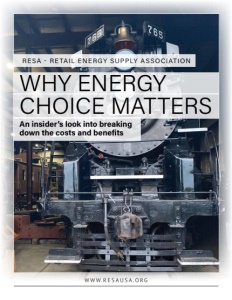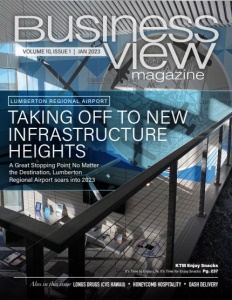RESA
Why Energy Choice Matters
An insider’s look into breaking down the costs and benefits
When businesses face competition from one another, they must strive to find ways to either produce their product or service at a lower cost, or they must find ways to offer their customers superior value for the same money. Despite its long history as a regulated monopoly franchise, electricity is no different. Choice leads to lower costs and exceptional value.
The Economic Case for Choice
The data is clear. The introduction of competition drives down electricity costs. Research by the Retail Energy Supply Association (RESA) found that states that rely on regulated monopoly service have seen prices rise over time at a far steeper rate than those states that restructured to adopt competitive retail choice. In other words, regardless of the experience of any individual customer at any point in time, the economic benefit to states that decided to implement choice is a significantly lower weighted average cost of electricity than would be the case had they continued to rely upon regulated monopolies. From 2008 through 2021, the weighted average price of electricity in states with retail choice has fallen by 2%, while the weighted average price in monopoly states has risen by 21%.[1] This astounding divergence validates the fundamental expectation that competition promotes efficiency and drives down prices.[2] Interestingly, lower costs have accrued not just to customers who switched to the least cost provider but also to those who remained on backup service from the utility company. This is because under choice utilities have also become more efficient by procuring their backup service from third-party wholesalers, thereby harnessing competitive forces.
 Technology and Innovation
Technology and Innovation
Looking back at the introduction of choices in telephone service, the changes over time have been astounding. When telephone service choice was introduced in the 1980s, the main driver for consumers was the attainment of savings on long-distance calls measured in cents per minute. Critics of competition pointed to rate comparisons between new entrants like Sprint and MCI versus the rates still offered by Ma Bell. At the time, they failed to grasp how competition would drive innovation in products, technology and consumer behavior. Early innovations like call waiting, call-answering and caller ID seemed underwhelming. Over time, however, competition in telephony has produced remarkable change, with products and services like email, texting, GPS navigation, internet search, music, and video streaming, beyond the imagination of early critics. To give an example, their landline telephone bill.
Taking a page from the telephone experience, electricity suppliers are finding new ways to offer similar innovations. One example is emulating the flat rate plan now available for making telephone calls. One supplier, Inspire, currently offers their consumers a fixed-cost electricity subscription program. Looking at historical usage, square footage, home location and other factors, Inspire can offer customers a fixed monthly bill rather than a rate measured in cents per kilowatt-hour. Many more opportunities for innovation lie ahead in integrating ways for consumers and businesses to reduce or manage their consumption (energy efficiency, time-varying prices and demand response), create their own supply (rooftop solar and home energy storage) and manage their supply from the grid (renewable content and carbon reduction).
The rollout of these innovations requires more than just product development by suppliers. It also requires education and awareness on the part of customers. In this respect, the ability of suppliers to reach customers, establish a vendor relationship and discuss new product offerings is essential. Relying upon a monopoly utility with no competitive incentive to innovate will leave customers without choices left behind.

People Want a Choice
Americans prefer to have commercial choices to make for themselves rather than have those choices made for them. Electricity is no exception. In March 2020, RESA commissioned Ragnar Research to conduct a nationwide poll on customer choice. The poll was conducted on March 2 through 5, 2020. Telephone interviews were done with 1000 likely voters, and Ragnar polled a diverse demographic. The group surveyed varied by age, gender, ethnicity, education, political affiliation and region. Polling included both choice and non-choice states, and the study has a margin of error of ±3%. Here are some of the results:
- 76% of voters find it important to have a choice when purchasing goods or services and “strongly agree” consumers should be able to shop for energy supplies like other goods.
- 61% of voters agree that the cost of energy like electricity or natural gas should be able to change in response to competition from other energy suppliers in the market.
- Only 29% of voters believe the cost of energy like electricity or natural gas should be set and controlled by regulations.
- Finally, when voters were asked if they knew that allowing customers to choose their energy supplier would increase the number of low-cost, green energy products, 70% said they would be more likely to support increasing the number of energy suppliers in the market.
This polling tells us that voters prefer to have choices in their energy supply, regardless of how they feel about their utility or what they are currently paying for electricity.
AT A GLANCE
RESA – Retail Energy Supply Association
What: The association covering retail energy suppliers
Where: Washington, DC
Website: https://www.resausa.org/



